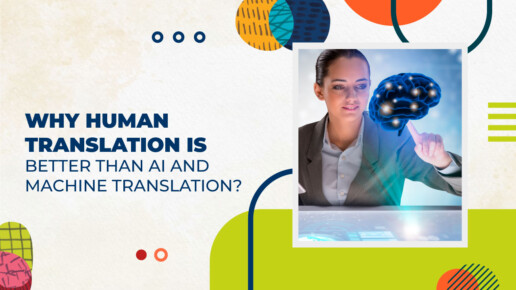Why human translation is better than AI and Machine Translation?
In today’s fast-paced globalized world, effective communication is more important than ever. Whether it’s for business, personal relationships, or simply sharing knowledge, the ability to convey thoughts and ideas accurately across languages is crucial. This brings us to the age-old debate: Human Translation vs. AI and Machine Translation. In this blog, Metaphrasis explore the merits of human translation and why it often surpasses its artificial counterparts.
The Essence of Language
1: The Nuances of Language
Language is a complex web of cultural, historical, and emotional nuances. While AI can translate words, it often fails to capture the subtleties, idioms, and cultural references that are deeply embedded in a language.
2: Context Matters
Context is key in communication. Humans possess the innate ability to decipher context, tone, and intent, making their translations more accurate and relevant to the situation.
Creativity and Adaptability
1: Creativity in Language
Languages are constantly evolving. Human translators adapt to these changes, creating translations that resonate with contemporary audiences, while AI may lag behind in recognizing and incorporating these shifts.
2: Tailored Solutions
Human translators can tailor their translations to suit specific industries, niches, or target audiences, ensuring the message is not only accurate but also effective in achieving its goal.
Quality Assurance
1: Proofreading and Editing
Humans can meticulously proofread and edit translations to eliminate errors, ensuring the final product is polished and professional. AI often lacks this level of detail.
2: Subject Matter Expertise
Certain fields require specialized knowledge, such as medical or legal terminology. Human translators with expertise in these areas can provide translations that are not only precise but also trustworthy.
Cultural Sensitivity
1: Avoiding Cultural Missteps
AI may inadvertently generate translations that are culturally insensitive or offensive. Human translators understand the importance of cultural sensitivity, preventing potential misunderstandings.
2: Adaptation to Local Markets
When targeting different markets, understanding cultural nuances is crucial. Human translators can adapt content to resonate with local audiences, enhancing its effectiveness.
Human Touch
1: Empathy and Emotion
Humans can inject empathy and emotion into their translations, making them more relatable and engaging for readers. AI lacks the ability to convey emotions effectively.
2: Building Relationships
In business and personal interactions, human translators can help build trust and relationships through their personalized approach to communication.
Conclusion
In a world where communication bridges gaps and fosters understanding, human translation remains a powerful tool. While AI and Machine Translation have made significant strides, We often fall short when it comes to capturing the essence, creativity, quality, and cultural nuances of language. Human translators offer a personalized touch that can’t be replicated by algorithms. So, when precision, adaptability, and empathy matter, human translation continues to be the superior choice.

